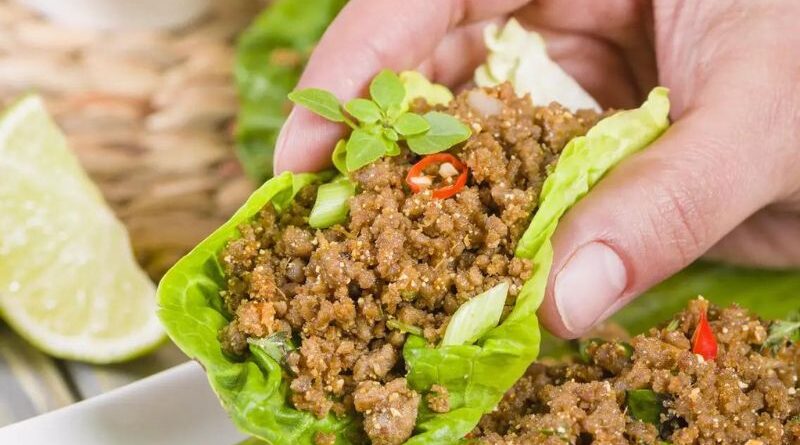low-carb veggies – In the quest for a nutritious and satisfying diet, the inclusion of low-carb vegetables stands as a fundamental pillar. These vegetables not only contribute essential vitamins and minerals but also offer a sense of fullness without compromising on health. Leafy greens like kale and spinach provide a nutrient-packed punch, while cruciferous vegetables such as broccoli and cauliflower deliver a low-carb alternative with fiber and antioxidants. Zucchini and other squashes showcase versatility as both culinary ingredients and low-carb options, and bell peppers add color and flavor without excess carbohydrates. From hydrating cucumbers to the creamy richness of avocados, these low-carb veggies promise a delectable journey toward satiety and well-being. Join us as we explore the world of these wholesome vegetables, discovering how they can fill you up while nourishing your body.
Low-carb veggies
Broccoli
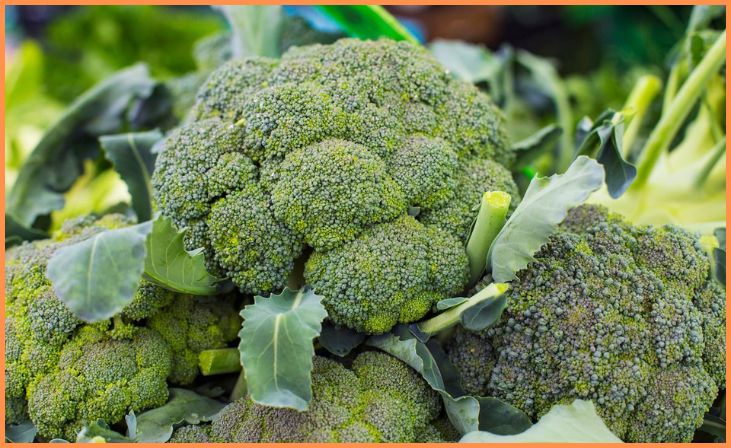
Broccoli is a low-carb powerhouse, containing only around 6 grams of carbs per cup. Packed with fiber, vitamins, and antioxidants, it’s a filling and nutritious option. Its versatility allows for easy integration into different dishes, from salads to stir-fries. Beyond its low-carb appeal, broccoli offers anti-inflammatory and potential cancer-fighting properties. Quick to prepare by steaming or roasting, it’s a go-to vegetable for those aiming to reduce carb intake while enjoying a range of health benefits.
Also, Read – 9 Tasty and Nutritious Snacks That Keep You Feeling Satisfied
Cauliflower

Cauliflower is a versatile, low-carb vegetable with approximately 5 grams of carbs per cup. Its adaptability makes it a popular substitute for higher-carb foods like rice or potatoes. Packed with fiber, vitamins, and antioxidants, cauliflower is both nutritious and filling. Whether mashed, riced, or roasted, it offers a satisfying texture and neutral taste that complements various dishes. Additionally, cauliflower provides choline, a nutrient important for brain health. Its low-carb content makes it suitable for ketogenic and low-carb diets, contributing to weight management and overall well-being. Include cauliflower in your meals to enjoy its nutritional benefits while keeping your carb intake in check.
Spinach
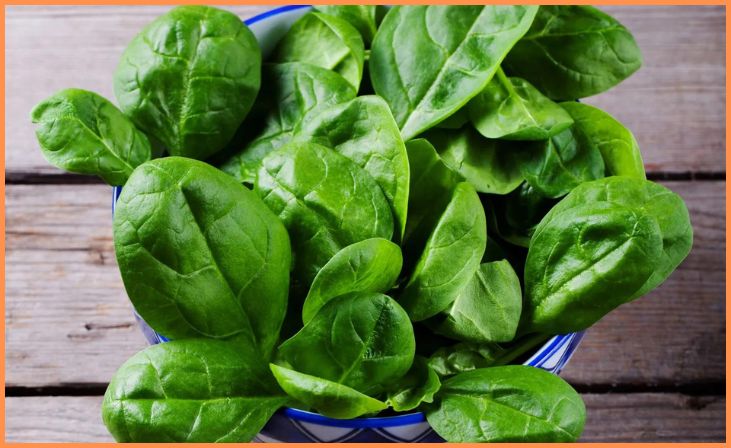
Spinach is a nutrient-dense, low-carb leafy green, containing only about 1 gram of carbs per cup. Rich in fiber, vitamins, and minerals, it’s a satisfying addition to a low-carb diet. Spinach’s versatility allows for easy incorporation into salads, smoothies, or cooked dishes. With its high water content, it adds volume without many calories. This leafy green also provides iron and antioxidants, supporting overall health. Whether enjoyed raw or cooked, spinach is a valuable choice for those looking to minimize carb intake while maximizing nutritional benefits. Incorporate it into your meals for a delicious and low-carb boost of essential nutrients.
Zucchini
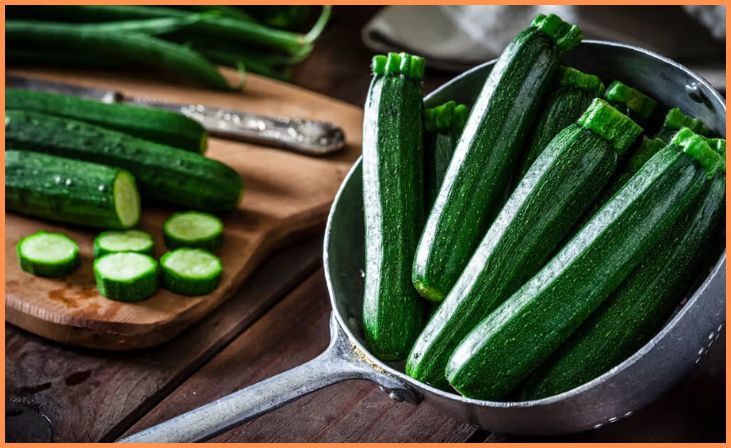
Zucchini is a low-carb vegetable, offering approximately 3 grams of carbs per cup. Versatile and mild in flavor, it’s a great addition to low-carb diets. Rich in fiber, vitamins, and minerals, zucchini contributes to satiety and overall health. With its low-calorie content, it’s suitable for those aiming for weight management. Zucchini can be spiralized into noodles, grilled, sautéed, or added to salads for a satisfying crunch. Its high water content also aids in hydration. Incorporating zucchini into your meals not only enhances texture and flavor but also provides essential nutrients without a significant carb load, making it a valuable choice for a balanced and low-carb diet.
Also, Read – 8 Delicious And Healthy Foods Under 50 Calories, Perfect For Snacking
Bell Peppers
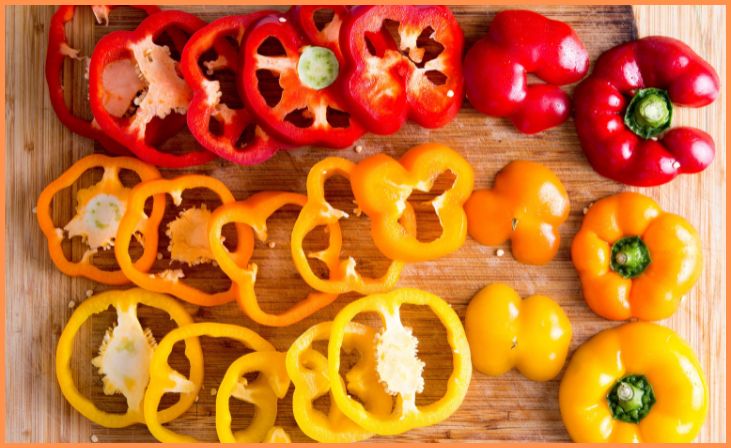
Bell peppers are vibrant, low-carb vegetables, containing around 6 grams of carbs per cup. Packed with antioxidants, vitamins, and fiber, they make a flavorful addition to low-carb diets. Available in various colors, each type offers unique nutritional benefits. Bell peppers contribute to eye health, immune function, and skin integrity due to their high vitamin C content. With their sweet and crunchy taste, they’re versatile in salads, stir-fries, or as a crunchy snack. Additionally, their low-calorie nature supports weight management. Including bell peppers in your meals not only adds color and taste but also provides essential nutrients without compromising your low-carb goals.
Asparagus

Asparagus is a low-carb gem, containing merely 5 grams of carbs per cup. This nutrient-dense vegetable is rich in fiber, vitamins, and minerals, making it an excellent choice for low-carb diets. With its unique flavor and tender texture, asparagus adds variety to meals without a significant carb impact. It provides folate, essential for cell division, and vitamin K, crucial for bone health. Asparagus also boasts potential diuretic properties, aiding in fluid balance. Whether grilled, roasted, or steamed, it’s a delicious and versatile side dish. Including asparagus in your low-carb repertoire not only enhances nutritional intake but also contributes to a satisfying and well-rounded culinary experience.
Cabbage

Cabbage is a low-carb vegetable, offering roughly 5 grams of carbs per cup. With its crisp texture and mild flavor, it’s a versatile addition to low-carb diets. Rich in fiber, vitamins, and antioxidants, cabbage supports digestive health and provides essential nutrients. Whether enjoyed raw in salads, sautéed, or fermented as sauerkraut, it adds a satisfying crunch to meals without a significant carb load. Cabbage also contains phytonutrients with potential anti-inflammatory properties. Its low-calorie content makes it beneficial for weight management. Including cabbage in your meals not only enhances flavor and texture but also contributes to a well-balanced and nutritious low-carb eating plan.
Conclusion
In conclusion, embracing the array of low-carb vegetables not only enhances nutritional intake but also ensures a satisfying and balanced eating experience. From the crisp crunch of leafy greens to the versatility of cruciferous veggies and the creamy goodness of avocados, these plant-based options offer a delicious path to feeling full and promoting overall well-being. By incorporating these nutrient-dense choices into your daily meals, you embark on a journey towards a healthier lifestyle—one where satiety and nutrition coexist harmoniously. Make these low-carb veggies a staple, and enjoy the rewards of both flavor and vitality.
FAQs
Low-carb vegetables are nutrient-dense, rich in vitamins and minerals, and can contribute to a feeling of fullness without excess calories. They are an excellent choice for those aiming to maintain a healthy and balanced diet.
Leafy greens like kale and spinach, cruciferous vegetables such as broccoli and cauliflower, and fiber-rich options like zucchini and bell peppers are known for their filling properties. Avocado, with its healthy fats, is also a satisfying choice.
Low-carb veggies can be added to salads, stir-fries, soups, or eaten as snacks. Substitute traditional carbs with alternatives like cauliflower rice or zucchini noodles for a lower-carb option.

